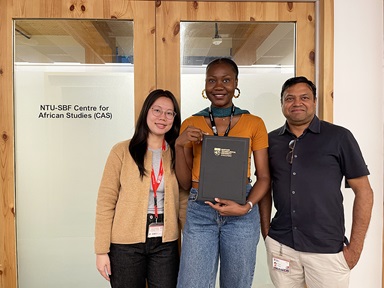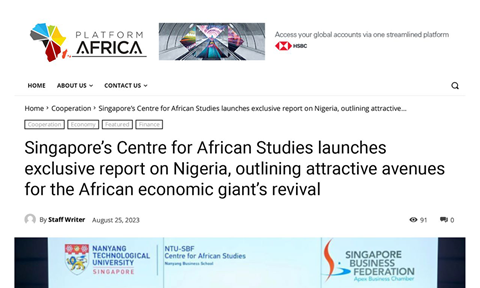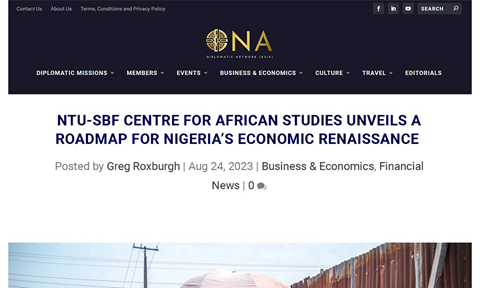The year in review
2023 was a high point for the NTU-SBF Centre for African Studies
By Amit Jain

This was, without doubt, a year of highpoint for the NTU-SBF Centre for African Studies. Indeed, it was something of an annus factum for us. There were many firsts. Let me start with the students. In February, three first-year NBS girls beat 132 students to win the inaugural Singapore Business Case Competition x African Challenge 2023.
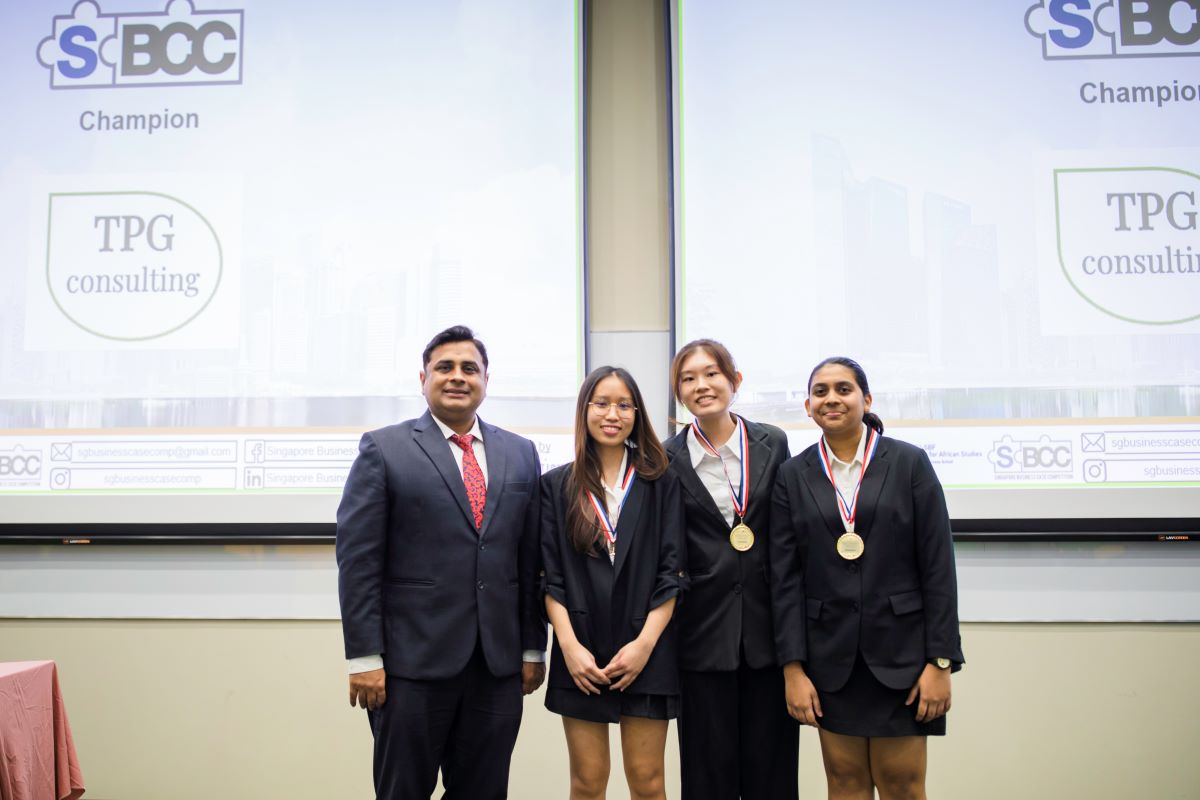
Freshmen Rui Ying, Cindrea Cruz, and Megan Tan won a cash prize equivalent of US$1100 and an all-expenses paid trip to Nigeria. This was the first time in its 14-year long history, the Nanyang Business School student-led Business Solutions Club organised a case writing competition exclusively centred on Africa. The challenge to the team was to solve agricultural challenges in Nigeria by leveraging climate-smart solutions. Participants had the opportunity to test their knowledge, analytical thinking, and communication skills by solving real-life business problems. The winners arrived in Lagos on 23 July after a 16-hour long flight from Singapore and immersed themselves in the world of African agriculture thanks to the generous sponsorship and support for the sponsors Olam Agri. The students had proposed three recommendations that tackled three critical issues faced by the agricultural sector in Nigeria - erratic weather patterns, insufficient supply of fish fingerlings in the aquaculture sector, and a lack of green pastures for cows. This was their opportunity to see whether their proposals could work in a real-life setting or not.

“This journey has been an amazing and unforgettable one. Not only did it allow us to delve deeper into sustainability issues in the real world, but it also trained our confidence and public speaking skills,” said Rui Ying Lim.
2023 was also the very first time that I was invited for the first time by the Civil Service College (CSC) to conduct a workshop for a group of South African foreign ministry officials. The officials from the Department of International Relations and Cooperation (DIRCO) were in Singapore on a study mission as part of the Singapore Cooperation Programme (SCP) run by the Ministry of Foreign Affairs (MFA). I conducted the half-day workshop on the potential of the blue economy in Africa. It included a simulation exercise where the participants were split in teams and competed to present a case for a common regional blue economy strategy.
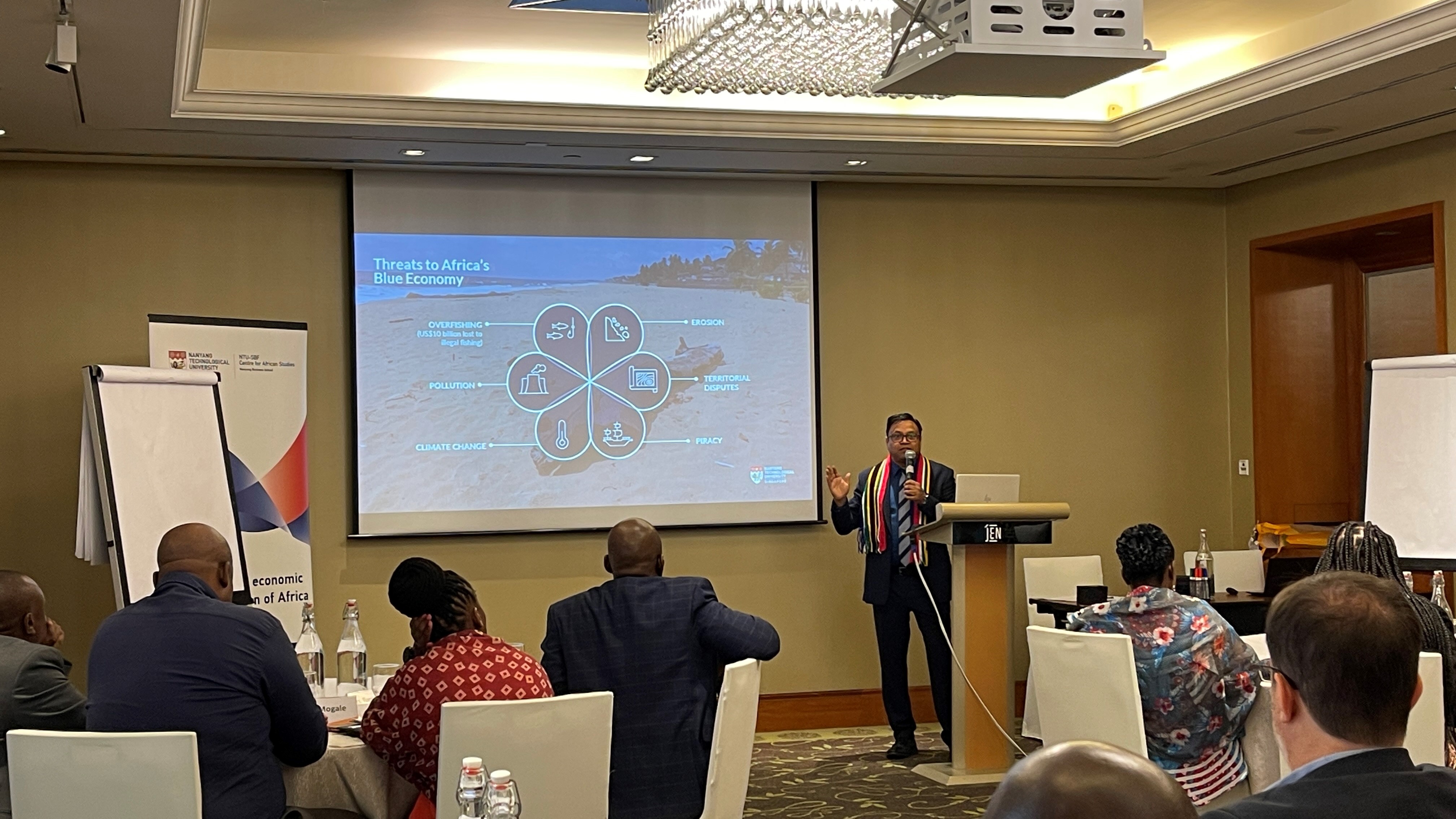
We hosted two notable visiting scholars – Dr Zainab Usman, the Director of Africa Program at the Carnegie Endowment for International Peace in Washington DC as well as Ronak Gopaldas, the Director of an Africa-focused risk-consultancy firm, Signal Risk and long time fellow at the NTU-SBF Centre for African Studies. He conducted an intensive workshop on how to evaluate risk when investing in Africa and delivered a lecture on campus. Over 40 NTU students, staff and the public attended the talk at our brand new lecture-hall here at the Nanyang Business School.
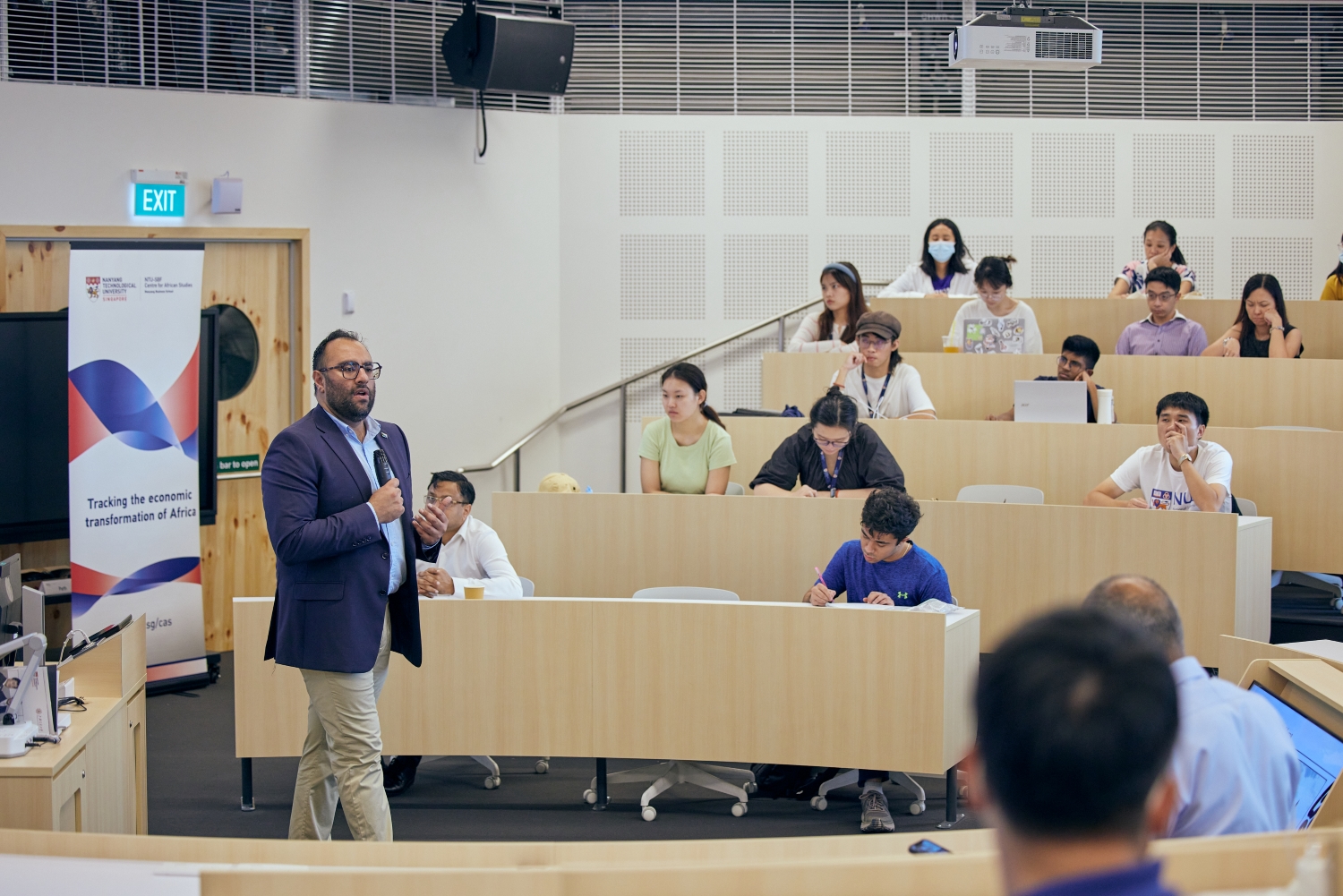
I moderated a panel discussion at the Africa Singapore Business Forum (ASBF) which put the spotlight on the manufacturing and consumer goods sector in Africa. The discussion ran for over 1.5 hours and covered a wide range of issues and brought home some practical advice for Asian investors looking to do business in Africa. The ASBF, which is organised every two years by Enterprise Singapore (ESG) brings together business leaders, officials of African investment promotion boards, and ministers to boost trade and investments between Singapore and Africa.
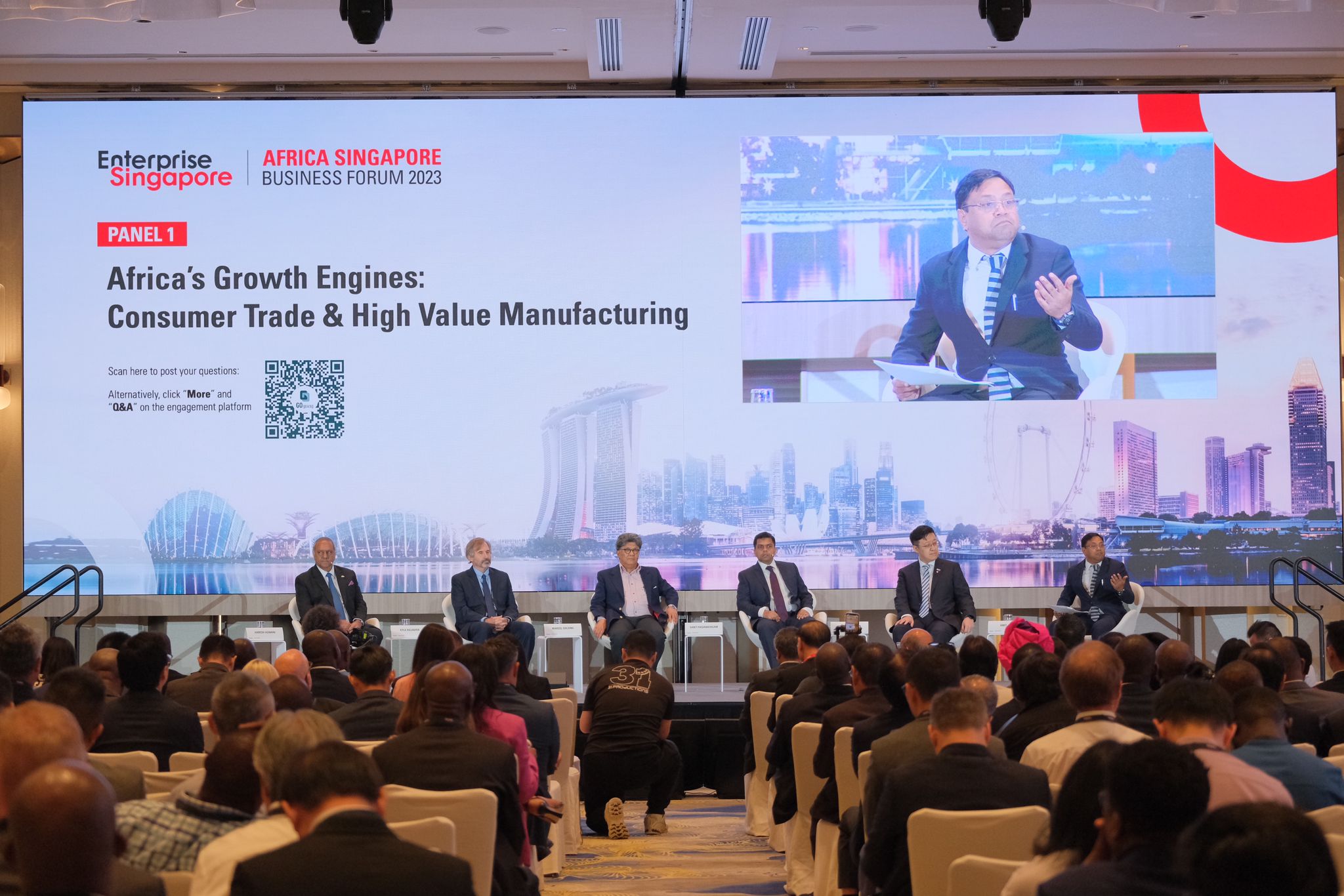
The Singapore Business Federation (SBF) invited me to join an overseas business mission to South Africa and Kenya to coincide with the first official visit of Prime Minister Lee Hsien Loong to the two African republics. I visited Johannesburg and Nairobi where I not only interacted with members of the delegation but also met representatives of several prominent African and international firms. In Nairobi, I moderated a ‘fireside’ panel discussion and also visited the state of the art US$200 million Bidco beverage manufacturing facility in Ruiru as well as the Bidco refined cooking oil plant in Thika.

But the single most significant achievement for the NTU-SBF Centre for African Studies this year was the unveiling of a 10-year economic roadmap for Nigeria. I presented the 150-page report Back to Growth: Priority Agenda for the economic revival of Nigeria to a packed audience at the Eko Hotel and Suites in Lagos on 27 Nov. (watch it here)
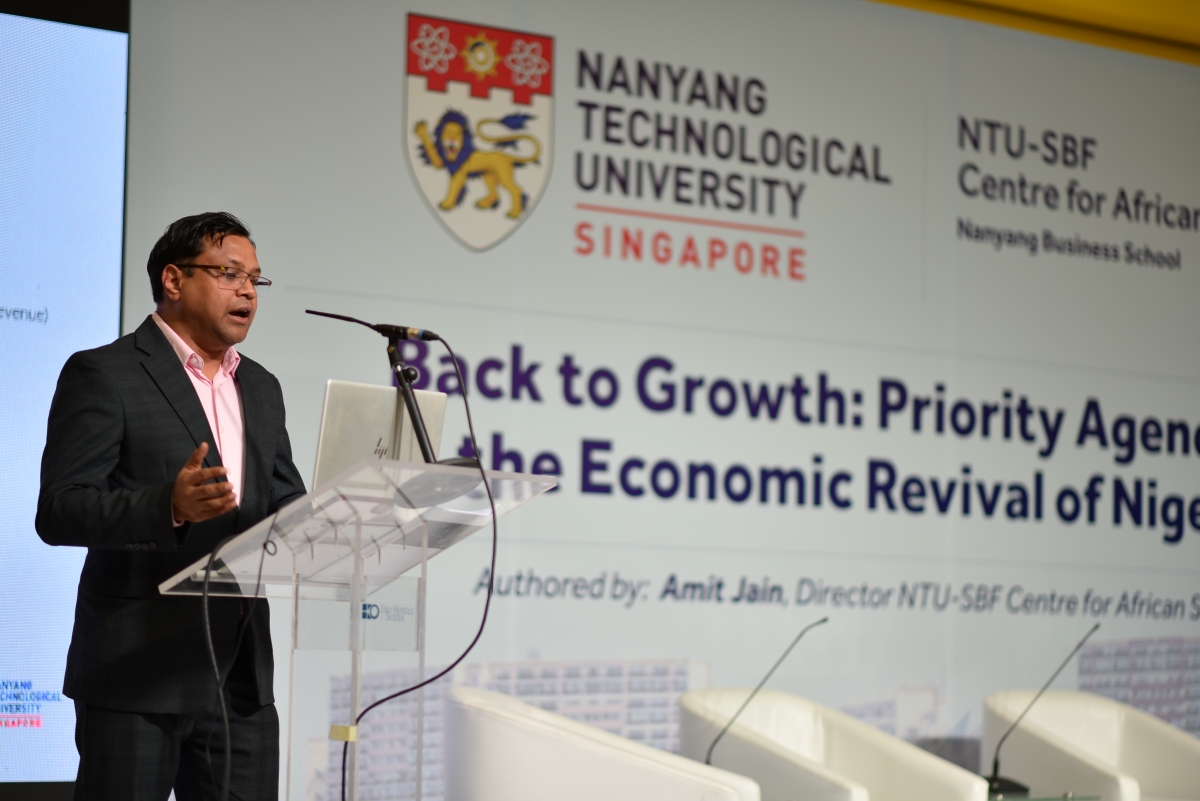
The report lays out specific time-bound targets for the incumbent administration of President Bola Tinubu. I believe that if some of the recommendations made in the report are carried out, Nigeria could achieve an annual GDP growth rate of 7% and emerge as one of the top 20 economies in the world.
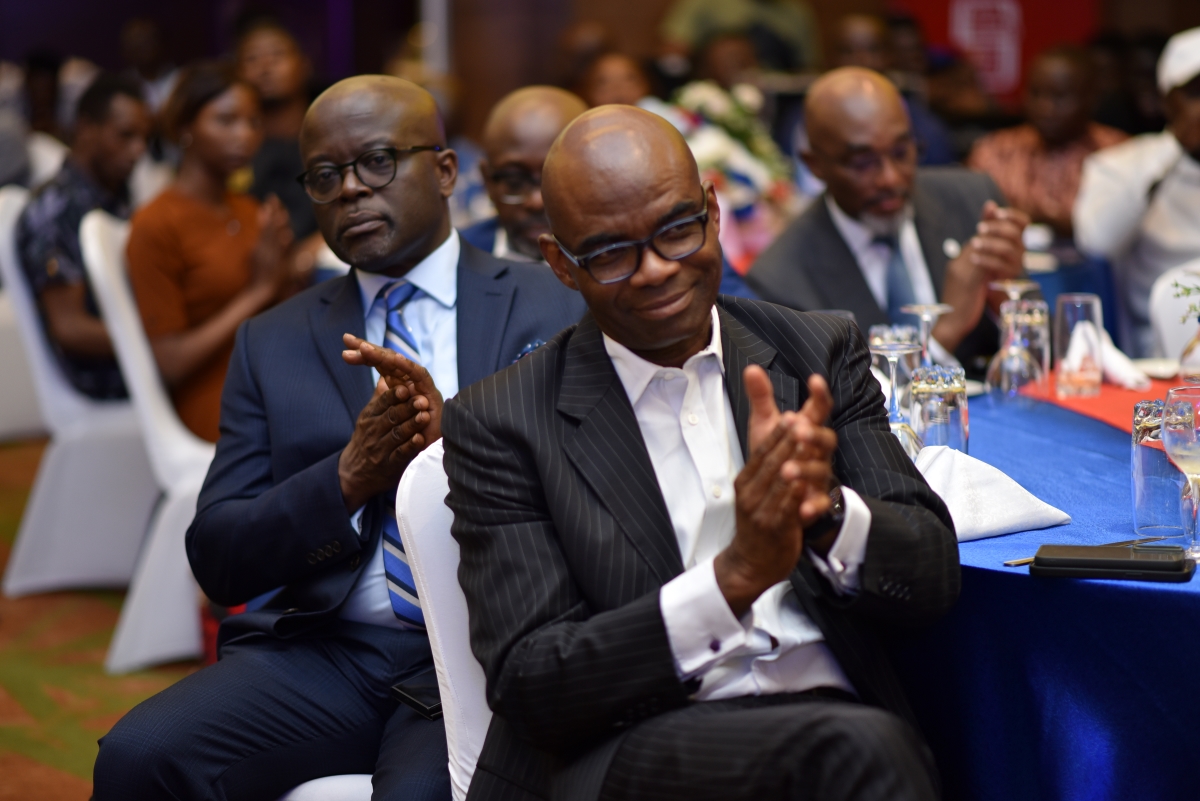
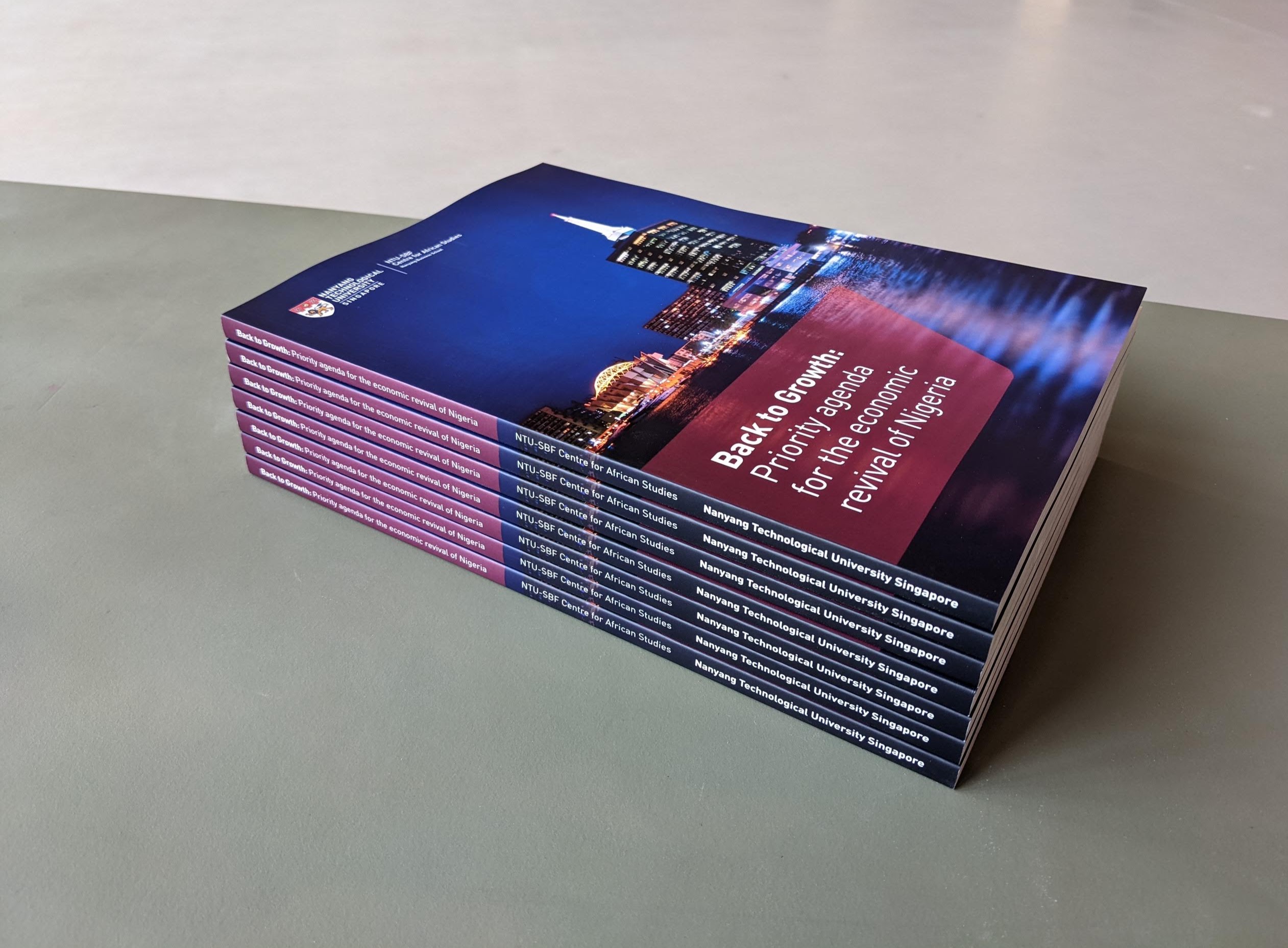
There has been unprecedented media interest in this report and some of excerpts were still making headlines at time of writing this piece. My keynote was followed by a panel discussion that included renowned Nigerian economist Dr Doyin Salami and the Chairman of Union Bank, Farouk Gumel.
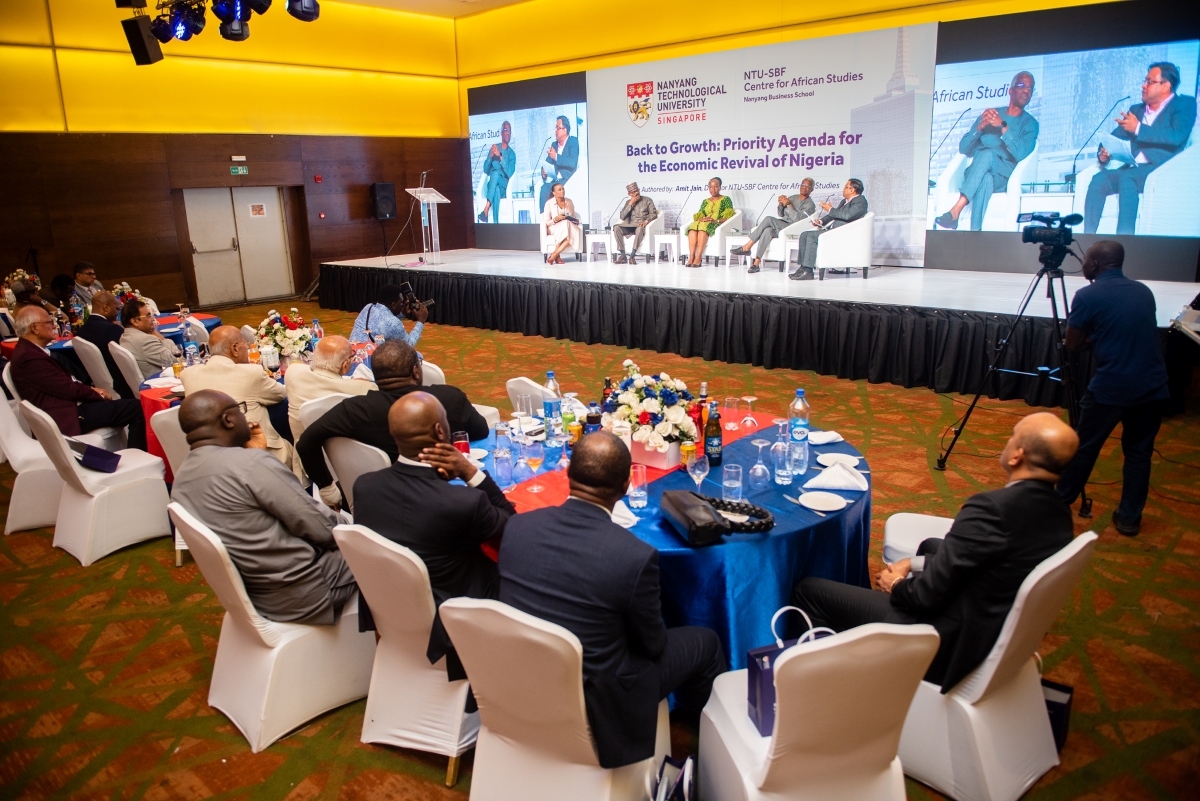
This project and event could not have happened without the support of our corporate partner Tolaram Group. I was hosted in Nigeria by Dinesh Rathi, the CEO of the Tolaram-run Lagos Free Zone. He showed me how the Special Economic Zone is helping nurture the manufacturing sector in Nigeria. Thanks to him and his team I also got to visit the massive Dangote Oil Refinery and Fertiliser complex and the Lekki Deepsea Port.
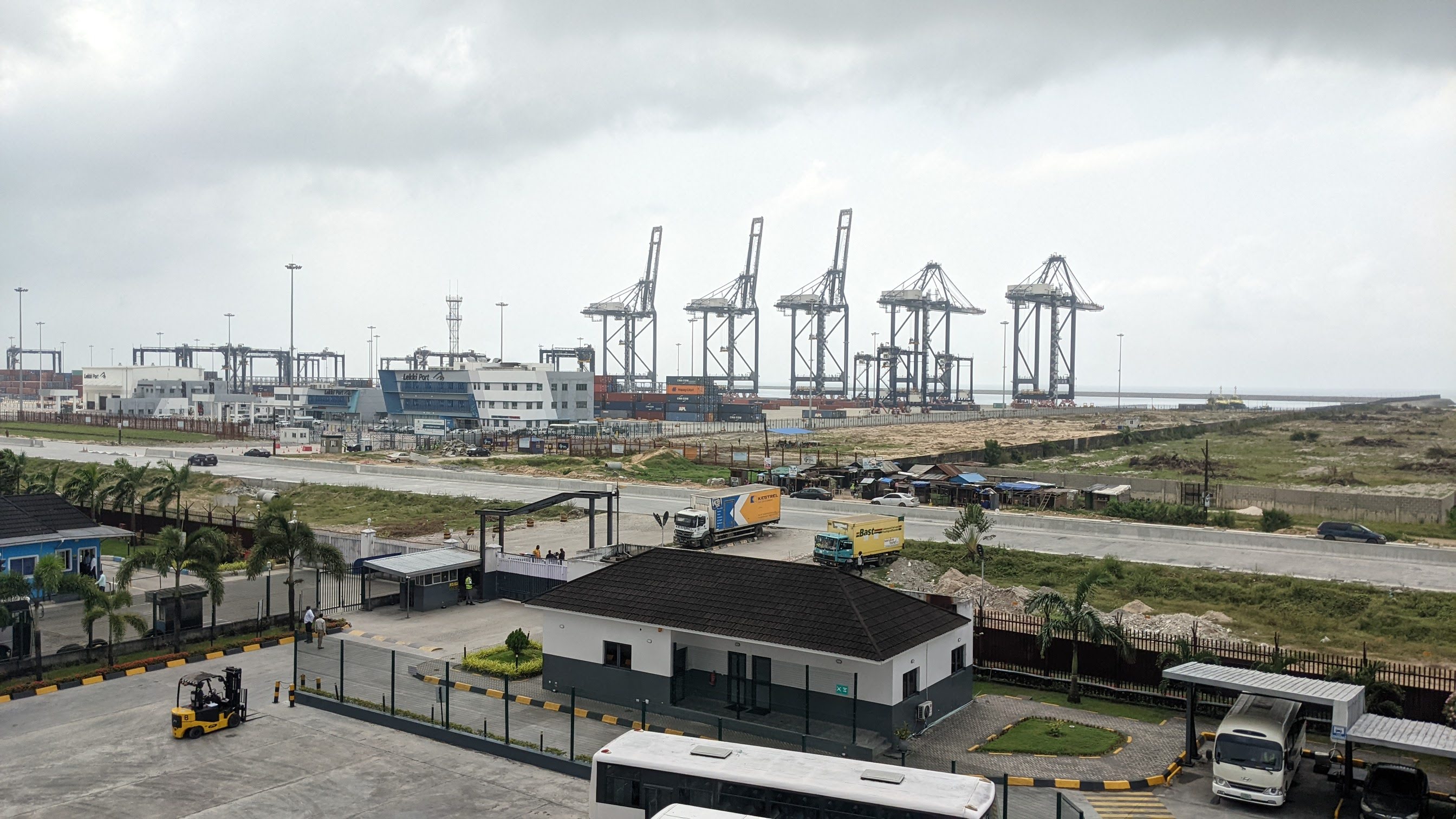
As we step into our 10-anniversary next year I look back with satisfaction at these achievements. Our readership has grown almost three-fold in the last three-years. We are seeing a steady increase in engagement with our key stakeholders. Although we remain a very small outfit, I like to believe we punch way above weight.
Download our report here.

